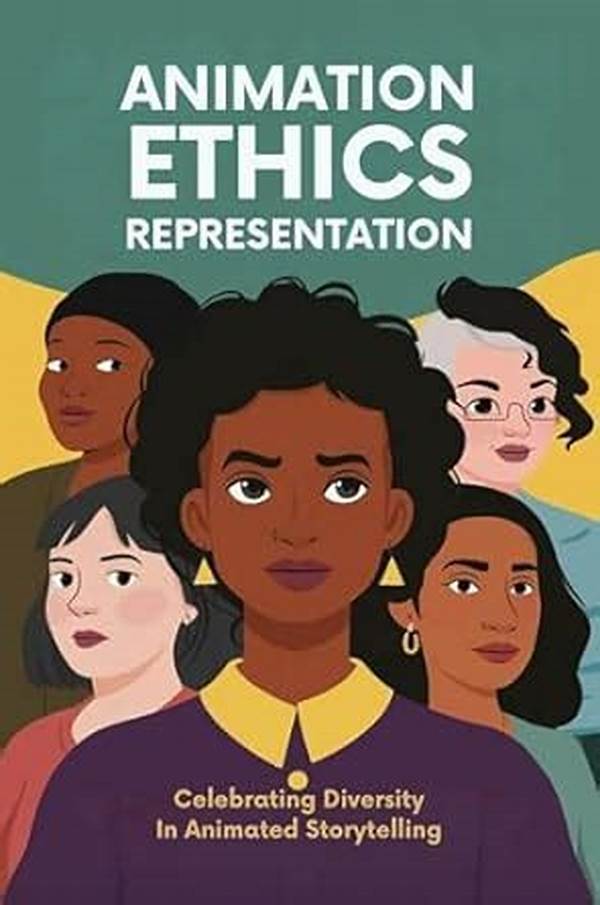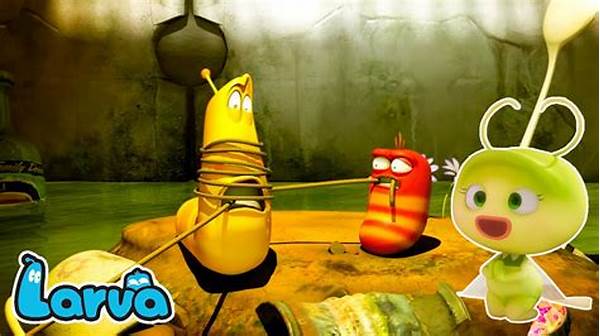In the world of animation films, storytelling isn’t just about dazzling visuals or whimsical tales. It’s about crafting narratives that resonate, teach, and guide audiences — young and old — through the tapestry of life’s complex realities. But here’s the kicker: while animation often feels like a magical journey, it carries the important responsibility of ethical storytelling. As consumers of stories, we need to champion ethical narratives that promote balanced values and reflect diverse perspectives. It’s time to shine a spotlight on storytelling ethics in animation films and ask ourselves — are we consuming media that embodies the values we hold dear?
Read Now : Animated Media Gender Analysis
Why Storytelling Ethics Matter in Animation
You know what’s up — stories shape our world! In the domain of rhythm and creativity, animation films wield a unique influence on our hearts and minds. But, let’s face it, without the right ethical compass, even the fanciest animated tale can fall short. Storytelling ethics in animation films isn’t just about what’s right or wrong; it’s about choosing narratives that encourage growth, understanding, and compassion. We vibe with stories that make us feel good but also challenge us, push us to think, and open us to all the beautiful, diverse experiences out there. So next time you’re lounging with your popcorn, ask yourself if the narratives you’re consuming gel with the ethics you stand by. After all, stories are more than just entertainment; they’re a gateway to a better understanding of our world.
Decoding the Narrative Frameworks
1. Cultural Sensitivity: Storytelling ethics in animation films demand respect for cultural diversity and accurate representation. It’s high time media moved beyond stereotypical portrayals.
2. Gender Balance: Strong female leads? Yes, please! Ethical storytelling ensures equality in gender representation, allowing every voice to shine.
3. Moral Lessons: Who says learning can’t be fun? Ethical storytelling beautifully weaves moral lessons into engaging narratives, making life skills entertaining and impactful.
4. Sustainability Messages: Infusing themes of environmental consciousness into stories leaves a mighty mark on the young audience, motivating them towards eco-friendliness.
5. Social Awareness: Stories often inspire action; ethical narratives bring critical social issues to light, encouraging empathy and proactive change.
Bridging Fantasies with Reality
Animation films pour life into the abstract, merging fantastical realms with authentic human emotions. This whimsical blend is precisely why storytelling ethics in animation films are a game-changer. It’s blending creativity with responsibility, ensuring stories thrill and inspire while also nurturing moral consciousness. Think about it — your favorite character’s journey might be packed with adventures, but real heart is found in their ethical decisions and growth. This connection between fantasy and reality offers a platform for viewers to reflect on their decisions, recalibrate their moral compasses, and apply these lessons in everyday life. Animation isn’t just a fleeting escape; it is a bridge that connects audiences to profound realities wrapped in enchanting tales.
The Pillars of Ethical Storytelling
Being conscious of storytelling ethics in animation films is crucial as it sets the foundation for the following principles:
1. Inclusive Narratives: Stories open up worlds. Diverse narratives ensure every viewer finds a piece of themselves.
2. Empathy Building: Narratives should open the heart, spark empathy, and broaden perspectives.
3. Character Integrity: Authenticity in characters creates deeper emotional connections.
4. Moral Integrity: Stories are impactful avenues to showcase ethical dilemmas and offer constructive resolutions.
Read Now : Discover Hidden Animation Director Gems
5. Accessible Content: Stories should transcend barriers so everyone can join this beautiful journey.
6. Balanced Story Arcs: A captivating plot with a fair resolution leads to a fulfilling viewer experience.
7. Educational Values: Stories as teaching tools? Absolutely! They enrich young minds with valuable lessons.
8. Respectful Humor: Humor that uplifts, never diminishes.
9. Ethical Marketing: Promote values in a way that remains true to the ethical core of the narrative.
10. Impactful Endings: Stories should conclude with hope and leave a lasting positive footprint.
Navigating the Animated Narrative Landscape
Animation films, with their boundless creativity and universal appeal, hold prime real estate in our cultural narrative landscape. But the magic box opens new responsibilities, particularly when it involves young impressionable minds. Storytelling ethics in animation films traverse beyond entertainment; they pave the way for enlightening discussions on real-world challenges and identity. Think of the narratives that once captured your heart and how they gently forged your understanding of courage, friendship, and community. Ethical storytelling in these films ensures whatever values are propagated, they move beyond the screen to craft a better, kinder world. So, get excited about the stories you consume and let their ethical threads inspire authentic change!
Transforming Myths to Realities
Engaging with animated stories is like having a superpower. When storytelling ethics in animation films are spot-on, they gift us transformative magic in the form of values, empathy, and understanding. These narratives aren’t mere animations; they’re cultural touchstones, myth-makers that shape perceptions of right and wrong, justice and injustice. The ethical lens through which these stories are crafted guides viewers — young and old — in deciphering complex real-world conundrums. They’re not just stories for now; they’re myths for the ages, growing more relevant as we navigate contemporary landscapes for authenticity and acceptance. By celebrating and demanding ethical storytelling, we embrace not just the fantastical, but the deeply real potential of narrative to change the world.
Conclusion: Embracing Ethical Narratives
When we watch animated films, we do more than fill our time — we engage in a cultural dialogue. Storytelling ethics in animation films form a critical part of this dialogue, urging us to choose stories that educate, entertain, and enlighten. Ethical narratives are the guideposts that ensure animation remains a positive and vibrant force. Such films not only create lasting impressions but also encourage viewers to venture out into the world with a more open, empathetic heart. Don’t just watch — reflect, critique, and champion stories that align with the best versions of ourselves. If stories are what we carry with us, let’s make sure they’re packed with the right kind of magic!


